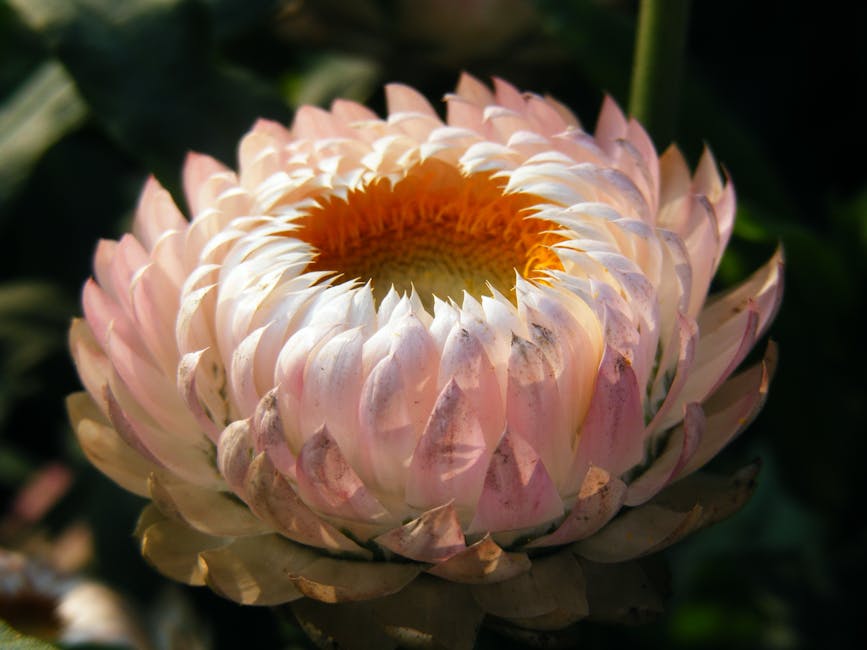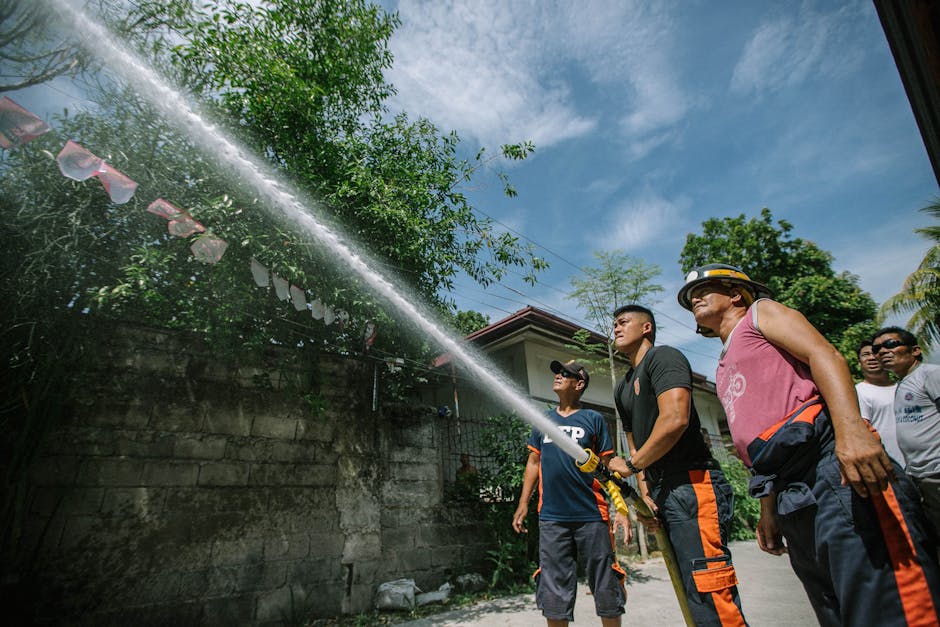Understanding Summer Allergy Season
Introduction to Summer Allergies
As the weather warms up and the days grow longer, many people eagerly welcome summer. However, for some, this season also signals the onset of summer allergies. Allergic reactions can significantly dampen the joy of sunny outings, impacting daily activities and overall well-being.
Imagine planning a fun picnic only to be thwarted by sneezing fits or itchy eyes. Recognizing the signs early and understanding the causes can help mitigate these allergy reactions, allowing for a more enjoyable summer experience.

Common Triggers During Summer
Summer brings a unique set of allergens that can provoke symptoms. Common triggers include:
- Pollen: Grass, wildflowers, and trees release pollen, making it a primary culprit for many.
- Mold: Warm and humid conditions often lead to mold growth, especially in damp areas.
- Dust Mites: Increased outdoor activities can stir up dust, notably in unkempt outdoor spaces.
- Insect Stings: Wasps and bees are more active, posing risks for those with insect allergies.
Awareness of these triggers can empower individuals to seek relief and enjoy the beauty of summer.

Types of Allergens
Pollen Allergies
Pollen allergies are among the most common triggers during summer. When the pollen count rises, people often find themselves sneezing, coughing, or experiencing itchy eyes. For many, this can make outdoor activities feel less enjoyable.
- Grass Pollen: Typically peaks in late spring to early summer.
- Tree Pollen: Common in early spring, but can sometimes linger into summer.
- Weed Pollen: Often a problem later in the summer months.
Mold Allergies
Mold allergies can also take hold during summer, especially in humid climates. Damp areas, such as basements or gardens, create the perfect breeding ground for mold spores.
- Outdoor Mold: Under leaves or decaying wood can release spores into the air.
- Indoor Mold: Often found in bathrooms, kitchens, or areas with leaks.
Insect Sting Allergies
Insect sting allergies can be another summer challenge. As people spend more time outdoors, encounters with bees, wasps, and hornets become more likely.
- Bees: More prevalent in gardens and flower patches.
- Wasps: Often build nests in eaves or tight spaces, increasing risk during outdoor gatherings.
Understanding these allergens helps in preparation and prevention, making summer a little more enjoyable for everyone!

Symptoms and Diagnosis
Common Symptoms of Summer Allergies
When summer allergies strike, they can produce a range of discomforting symptoms that can disrupt daily life. Many people might liken it to having a relentless cold, but it’s important to recognize the signs.
Common symptoms include:
- Sneezing and Nasal Congestion: The pesky feeling of irritation in the nasal passages can feel never-ending.
- Itchy, Watery Eyes: This can lead you to rub your eyes more than you’d like.
- Coughing and Wheezing: Allergens can irritate the throat and lungs, causing breathing difficulties.
- Fatigue: Constantly battling allergies may leave you feeling drained by the end of the day.
How Allergies are Diagnosed
Identifying summer allergies typically involves a few steps. Many find it helpful to discuss their symptoms with a healthcare provider.
- Medical History: A detailed discussion of symptoms, previous allergy incidents, and family history can provide insights.
- Physical Examination: A quick check-up can help rule out other conditions.
- Allergy Testing: Skin or blood tests may be conducted to pinpoint specific allergens, helping to create a tailored management plan.
Recognizing and diagnosing these allergies is a critical step to regaining control and enjoying the summer season!
Managing Allergy Triggers
Prevention Strategies
Managing summer allergies often begins with effective prevention strategies. By taking proactive measures, individuals can significantly reduce exposure to allergens and enjoy their outdoor experiences.
Here are some practical strategies:
- Stay Indoors During Peak Pollen Times: Pollen levels are usually highest in the early morning and on windy days.
- Use Air Purifiers: High-efficiency particulate air (HEPA) filters can help reduce indoor allergens.
- Keep Windows Closed: This can minimize pollen and mold spores from entering your home.
- Shower After Outdoor Activities: Washing off pollen can prevent it from spreading indoors.
Mayo Clinic prevention tips for seasonal allergies.
Medication Options
When prevention isn’t enough, several medication options may provide relief. Over-the-counter remedies can be a lifesaver.
- Antihistamines: Help relieve sneezing and itching by blocking natural histamines.
- Decongestants: Reduce nasal congestion, making it easier to breathe.
- Nasal Corticosteroids: Lower inflammation in the nasal passages for long-term relief.
Finding the right combination of strategies and medications can help individuals manage summer allergies effectively, allowing them to enjoy this vibrant season to the fullest!
Lifestyle Adjustments
Diet and Nutrition Tips
Making thoughtful dietary choices can actually play a key role in managing summer allergies. A well-balanced diet can support your immune system and reduce inflammation. Here are some helpful tips:
- Incorporate Anti-Inflammatory Foods: Foods high in omega-3 fatty acids, like salmon and walnuts, can help calm inflammation.
- Stay Hydrated: Drinking plenty of water helps thin mucus, making it easier to clear allergens from your system.
- Boost Your Antioxidants: Fresh fruits and veggies, particularly those rich in vitamin C—like oranges and strawberries—can bolster your immune response.
Making these small nutrition adjustments may not only alleviate symptoms but also promote overall wellness throughout the summer.
Indoor and Outdoor Practices
Adopting certain practices both indoors and outdoors can significantly improve allergy management. Here are some effective practices:
- Indoor Cleaning Routines: Regularly dusting and vacuuming with HEPA filters can lower allergen levels inside your home.
- Create an Allergen-Free Zone: Designate bedrooms as allergy-free spaces by using hypoallergenic bedding and keeping pets out.
- Limit Outdoor Exposure: When pollen counts are high, consider relaxing indoors or engaging in early morning or late evening activities when levels are typically lower.
By adjusting both dietary habits and lifestyle practices, individuals can better navigate the challenges of summer allergies while fully enjoying the season!

Seeking Professional Help
Allergist Consultation
When managing summer allergies becomes overwhelming, reaching out to an allergist can be a game changer. A consultation with a specialist provides invaluable insights tailored to individual experiences. Many people find that discussing their symptoms in detail can lead to effective management strategies.
- Initial Assessment: An allergist will review your medical history and symptoms, helping to pinpoint potential triggers.
- Personalized Action Plan: They can develop a comprehensive plan that might include lifestyle changes, medication, or therapy options.
This targeted approach offers hope and relief, particularly for those whose allergies significantly impact their daily life.
Allergy Testing Options
To truly understand what’s causing your summer misery, allergy testing is crucial. There are a couple of common methods used:
- Skin Tests: Small amounts of allergens are applied to the skin, allowing doctors to see how your body reacts.
- Blood Tests: These tests measure the immune system’s response to specific allergens by looking for immunoglobulin E (IgE) antibodies.
Understanding which allergens affect you can help create a targeted strategy for managing your allergies, allowing you to enjoy summer with more confidence and less discomfort!
Coping with Allergies
Emotional Impact and Support
Coping with summer allergies isn’t just about managing physical symptoms; it can also take an emotional toll. Many individuals feel frustrated or isolated when their allergies prevent them from enjoying social activities or outdoor events.
It’s important to not underestimate this emotional impact.
- Connect with Others: Consider joining support groups or online forums where you can share experiences and tips with fellow allergy sufferers.
- Talk to Friends and Family: Let them know how your allergies affect you; their support can mean the world.
Recognizing your emotions and seeking support can help ease the burden of allergies.
Maintaining Quality of Life
Despite the challenges that summer allergies pose, maintaining a fulfilling quality of life is possible. Here are some strategies to keep things on track:
- Set Realistic Goals: Focus on activities you enjoy that are allergy-friendly, like a movie night instead of an outdoor barbecue.
- Practice Self-Care: Regular exercise and mindfulness practices, such as yoga or meditation, can reduce stress and improve your outlook.
- Stay Informed: Knowledge is power! Understanding your allergies better can empower you to manage them more effectively.
Finding a balance and staying proactive allows individuals to reclaim their summer joy, ensuring that allergies don’t overshadow their experiences!
Conclusion
Recap of Strategies
As summer rolls in with all its glory, it’s essential to have effective strategies at hand to manage summer allergies. Remember the importance of prevention, such as staying indoors during peak pollen times or using air purifiers to keep spaces allergen-free. Nutrition plays a vital role too; incorporating anti-inflammatory foods can support your immune system.
- Seek Professional Help: Don’t hesitate to consult an allergist for personalized advice.
- Adopt Lifestyle Adjustments: Simple indoor and outdoor practices can lessen exposure to allergens.
Empowering Allergy Management
Ultimately, empowerment comes from knowledge and action. Understanding your allergies enables you to advocate for yourself. Embrace mindfulness practices and connect with supportive communities.
By equipping yourself with effective strategies, you can navigate the challenges of summer allergies with confidence and reclaim joy in your outdoor adventures! A proactive approach allows you to thrive despite the allergens, making every sunny day a memorable one.
Q & A Section
| Question | Answer (concise) |
|---|---|
| What causes summer allergies? | Grass, weed, and lingering tree pollens join mold spores and insect venoms to spark histamine releases in sensitive immune systems. |
| How do I know if it’s a cold or allergies? | Colds bring fever and last 7-10 days; allergies linger for weeks, skip the fever, and worsen outdoors or after yardwork. |
| When are pollen counts highest? | Early morning (5 – 10 a.m.) and windy afternoons; counts peak for grass in June, weeds in late August, and mold after summer rains. |
| Can thunderstorms really worsen allergies? | Yes—“thunder fever” shatters pollen grains into lung-penetrating particles, spiking ER visits for asthma and hay fever. |
| What OTC medicine works best for fast relief? | Second-generation antihistamines (cetirizine, loratadine) calm sneezes within an hour; pair with a nasal steroid for congestion. |
| Do air purifiers help? | HEPA-equipped purifiers cut indoor pollen and mold by up to 85 %, reducing nighttime symptoms. |
| Can diet really ease allergies? | Diets rich in omega-3s and vitamin-C-loaded fruits modulate inflammation and may dampen histamine spikes over time (salmon, walnuts, berries). |